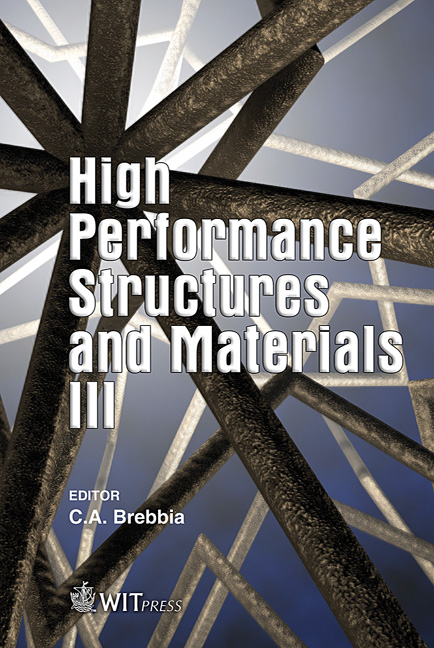Mechanical Characterisation Of A Viscous-elastic Plastic Material, Sensitive To Hydrostatic Pressure And Temperature
Price
Free (open access)
Transaction
Volume
85
Pages
13
Published
2006
Size
2,035 kb
Paper DOI
10.2495/HPSM060221
Copyright
WIT Press
Author(s)
V. D. Le, M. Caliez, M. Gratton, A. Frachon & D. Picart
Abstract
This paper deals with the characterization of the static mechanical behaviour of an energetic material. Due to the constituents (crystals and a polymeric binder), the behaviour is influenced by the pressure, the temperature and the strain rate. The temperature, considered varying slowly, is a parameter and the computational problems are uncoupled. Therefore, a complete experimental protocol and a model have been developed. Inspired from the Visco-Scram model, the behaviour is described using a general Maxwell model in which all the branches are affected by an isotropic damage. The first branch takes into account elastic-plastic behaviour. The yield stress is given by a parabolic criterion, characterized using compressive, tensile and tri-axial tests. The hardening is isotropic and the plastic flow rule is nonassociated. The other branches are viscoelastic. A genetic algorithm is used to optimise the viscoelastic parameters, previously obtained using DMA measurements. Comparisons between the model and experiments are proposed for different temperatures, strain rates and pressures. At last, a user material subroutine has been developed in Abaqus Standard and finite element computations of the Brazilian test are compared to the experimental response. Keywords: energetic material, parabolic plastic criterion, genetic algorithm, DMA, viscoelasticity, Isotropic damage, Brazilian tests.
Keywords
energetic material, parabolic plastic criterion, genetic algorithm, DMA, viscoelasticity, Isotropic damage, Brazilian tests.





